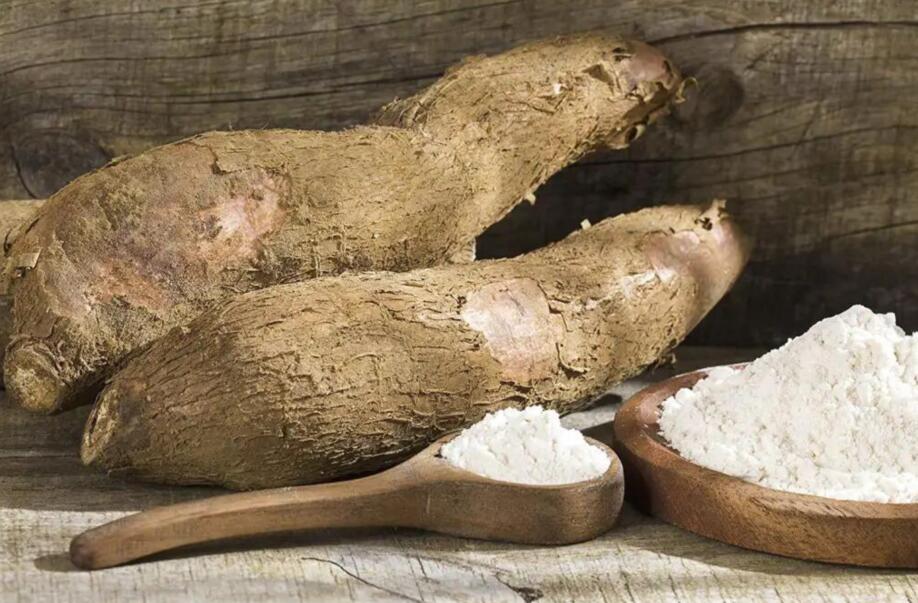Cassava is a nutrient-rich crop. Here are its nutritional values and benefits:
1. Nutritional value
Rich in starch
Cassava root contains a high amount of starch, usually around 20-30%, making it an important source of carbohydrates. Starch is decomposed into glucose through the action of digestive enzymes in the human body, providing energy for the body and maintaining normal physiological functions of the body, such as muscle movement, brain thinking, etc.
Contains protein
Cassava contains a certain amount of protein, although its protein content is relatively low compared to other legumes or grains, with approximately 1 – 2 grams of protein per 100 grams of cassava. These proteins contain a variety of amino acids required by the human body and are the basic components of human cells and tissues. They play an important role in the growth, repair and maintenance of normal metabolic functions of the body.
small amount of fat
The fat content in cassava is low, around 0.3 grams per 100 grams of cassava. Although the fat content is low, these fats are mainly unsaturated fatty acids, which are beneficial to human health, such as helping to maintain the integrity of cell membranes and promoting the absorption of fat-soluble vitamins.
Vitamin content
Cassava contains a variety of vitamins, including vitamin C, B vitamins (such as vitamin B1, vitamin B2, vitamin B6, etc.). Vitamin C is an antioxidant, and the content of vitamin C in every 100 grams of cassava can reach about 20-30 mg. It helps strengthen immunity, promotes collagen synthesis, and is beneficial to skin, bone and blood vessel health. B vitamins play an important role in energy metabolism, nervous system function, etc.
Various minerals
It is also rich in minerals such as potassium, magnesium, calcium, and iron. Potassium helps maintain normal heart function and stable blood pressure, with potassium content ranging from 270 to 500 mg per 100 grams of cassava. Magnesium is important for bone health and regulating the activity of many enzymes. Calcium is the main component of bones and teeth, and iron is a key element involved in hemoglobin synthesis, which plays a certain role in preventing iron deficiency anemia.
Starting a cassava processing business is a potential business project. Here are some detailed steps and key points:
1. Market research
Product demand analysis
Food field: Understand the various application demands of cassava in the food market, such as the market demand for cassava vermicelli, cassava pearls (used in milk tea), baked goods made from cassava flour, etc. For example, with the booming development of the milk tea industry, the demand for tapioca pearls continues to grow. It is necessary to analyze the quality, price, packaging and other requirements of milk tea shops in different regions for tapioca pearls.
Industrial sector: Investigate the demand for cassava in paper, textile, pharmaceutical and other industrial sectors. For example, in the paper industry, cassava starch can be used as an adhesive and reinforcing agent for paper. It is necessary to study the quality standards and procurement channels of cassava starch in paper mills. any cassava machine needed please email to info01@cnoilmachine.com
